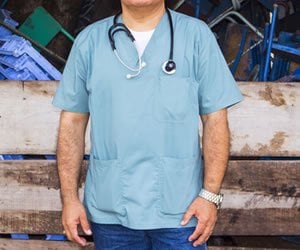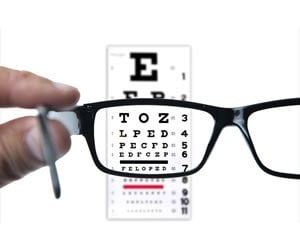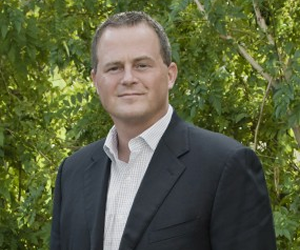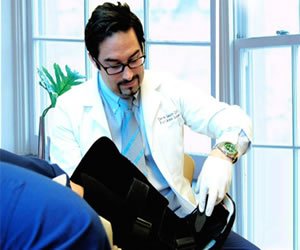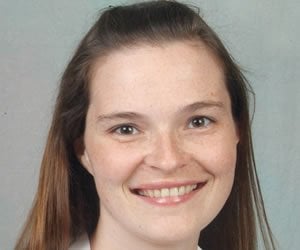There exists a fundamental flaw in the USMLE exams – applicants who pass the exam cannot retake the exam. This means that applicants who score poorly in the exams are prevented from applying to competitive specialties and in some cases even from practicing as a doctor in the US. Why does the USMLE not allow candidates to rewrite exams to improve scores? To understand this, we have to delve into the purpose of USMLE.
The United States Medical Licensing Examination or USMLE as it is popularly known, is a critical set of exams that medical students and graduates must pass before they can practice medicine in the US. The USMLE is a multi-part exhaustive evaluation of a physician’s ability to apply knowledge, concepts, and principles, and to determine fundamental patient-centered skills that are important in health and disease and that constitute the basis of safe and effective patient care. It is highly regarded not just in the US, but also in various other countries around the world. So much so that one can use the USMLE in lieu of that country’s exams.
career
Medical School Reapplication: The Perspective of a Reapplicant
I am a reapplicant. Those are four words that every reapplicant shies away from and … Read more
Mission Medicine
Lucy Doyle, M.D., had never imagined that life after residency could be so hard. But … Read more
Why I Smile
Republished with permission from here. At 8 a.m. every morning of the work week, I show … Read more
Stepping Into the Medical Field and Out of Your Comfort Zone
Are you ready to become a doctor? Making the transition from undergraduate to medical school student, and on to being a full time doctor can be exciting and intimidating at the same time. There are many challenges and obstacles you may face along your journey, but what is most important is that you face them with confidence. Read on for tips on how to make stepping outside your comfort zone a little more comfortable.
Build Strong Relationships With Your Professors
Start out in the classroom. When you are still studying, whether you are an undergraduate or already in medical school, classes should be much more than simply showing up and doing the work. Take time to get to know your professors, if the size of your university/class allows. They have vast amounts of knowledge and experience, and most likely they are more than happy to share that with you!
A Clear Vision: A Conversation with John Flanagan, Dean, UC Berkeley School of Optometry
When John Flanagan was 5 years old, he began suffering from migraines. “One of the … Read more
20 Questions: Barbara Pro, Oncologist
Dr. Barbara Pro, a medical oncologist in Philadelphia, is a Thomas Jefferson University-Kimmel Cancer Center … Read more
Humane Medicine
Republished with permission from here. “What can you do here that we can’t do at home?” … Read more
20 Questions: Kent A. Kiehl, PhD – Criminal Psychopathy
Dr. Kent Kiehl is an associate professor in the department of psychology at the University … Read more
20 Questions: Devon Glazer, DPM, FACFAS, FAAFAS
Devon Glazer, DPM, Fellow of the American College of Foot and Ankle Surgeons (FACFAS) and … Read more
Finding the Joy in Medicine: A Conversation with Dr. David A. Fleming
Despite being the current President of the American College of Physicians (ACP), David A. Fleming, … Read more
Coming to a Future Near You: Neuromodulation, a Multi-Specialty Field
Neuromodulation is an exciting therapy for improving neurological ailments. When I graduated medical school in … Read more
Leveraging Pre-Med Learning Experiences for Success
Pre-medical students can – and should – take advantage of the many opportunities available to … Read more
A Day in the Life of a Young Hospitalist
I am a young hospitalist who is 16 months into my role at an urban … Read more
Doing Small Things Great: A practical guide to contributing to your team as an MS3
“Go forth and do great things.”
– Anonymous
No one gets into medical school without a considerable dose of ambition. We want to be involved, to make a difference, to save lives. In short, we want to do great things. We spend years waiting in the wings, our enthusiasm funneled into pre-med activities, o chem exams, and countless hours of studying in the first two years of medical school. Like a horse that has been held tightly in the starting gate that suddenly swings up at the sound of the starter’s bell, we spring forward with unbridled enthusiasm into third year, dirt flying. Having spent nearly a decade in prep (if you start counting in undergrad), we are eager to actually do something and start making a difference. And yet, so much of third year can be sitting around, waiting for the action, and, when the action happens, standing in the back of the room.
How International Experiences Can Enrich Your Studies as a Pre-Health Student
You’ve volunteered. You get good grades. You’ve shadowed doctors. You’ve done everything you can to be a great student and ideal candidate for professional schooling. What more can you do to make yourself stand out from the crowd? For starters, you can participate in an international internship and shadow doctors in another country! Here are a few ways in which adding an international component adds value to what you are already doing:
Obtain Transferrable Medical Experience
Whether or not a program offers credit, participating in a pre-health internship abroad will be a unique experience that will give you plenty of subject matter to talk about in interviews. You will be able to see what life is like for a foreign doctor, and sometimes you may be able to observe more than you may see shadowing doctors back in your home country, such as observing a number of surgeries firsthand. Having this opportunity is a great way to get more direct observation experience outside of the classroom.
An Introvert’s Survival Guide: How to function (and flourish) in medical school as an introvert
“Knowing yourself is the beginning of all wisdom.” – Aristotle Even at the time, I … Read more
20 Questions: Deborah Elaine Linder, DVM, Veterinary Nutritionist
Deborah Elaine Linder, DVM, is a board certified veterinary nutritionist and a research assistant professor at Tufts Cummings School of Veterinary Medicine. She received her bachelor’s degree in biological anthropology and anatomy from Duke University (2005), and her Doctor of Veterinary Medicine (DVM) from Tufts Cummings School of Veterinary Medicine (2009). Dr. Linder completed a one-year veterinary medicine internship at VCA South Shore Animal Hospital in Weymouth, Mass., followed by a two-year veterinary clinical nutrition residency at Tufts.
Dr. Linder is a member of the Massachusetts Veterinary Medical Association, American Academy of Veterinary Nutrition, Boston Nutrition Obesity Research Center, American Association of Human-Animal Bond Veterinarians, and International Society for Anthrozoology, and she is a steering committee member of the Pet Therapy Group Tufts Paws for People. She has been published in the Journal of the American Animal Hospital Association, Veterinary Nursing, BMC Veterinary Research, American Journal of Veterinary Research, Journal of Veterinary Emergency and Critical Care, Veterinary Quarterly, Journal of the American Association for Laboratory Animal Science, and Journal of the American Veterinary Medical Association.
When did you first decide to become a veterinarian? Why?
20 Questions: Judy Melinek, MD, Pathology
Dr. Judy Melinek is a board-certified forensic pathologist in San Francisco, CEO of PathologyExpert Inc., … Read more
Choosing a Field in Medicine: How to Maximize Your Time in Medical School
Choosing a field of medicine is likely the most important decision a medical student will … Read more



